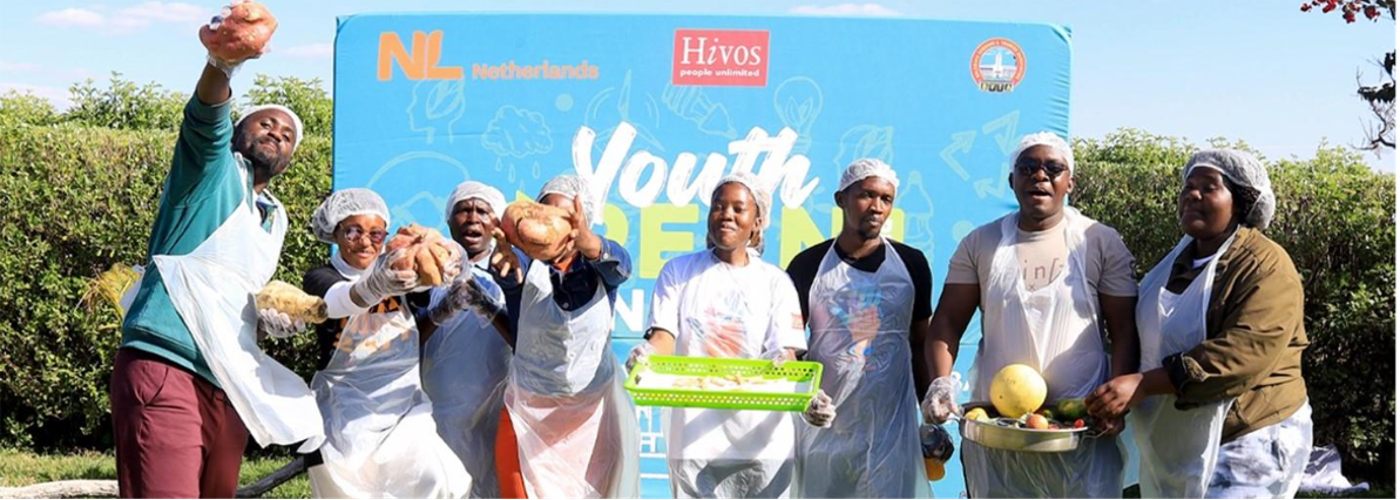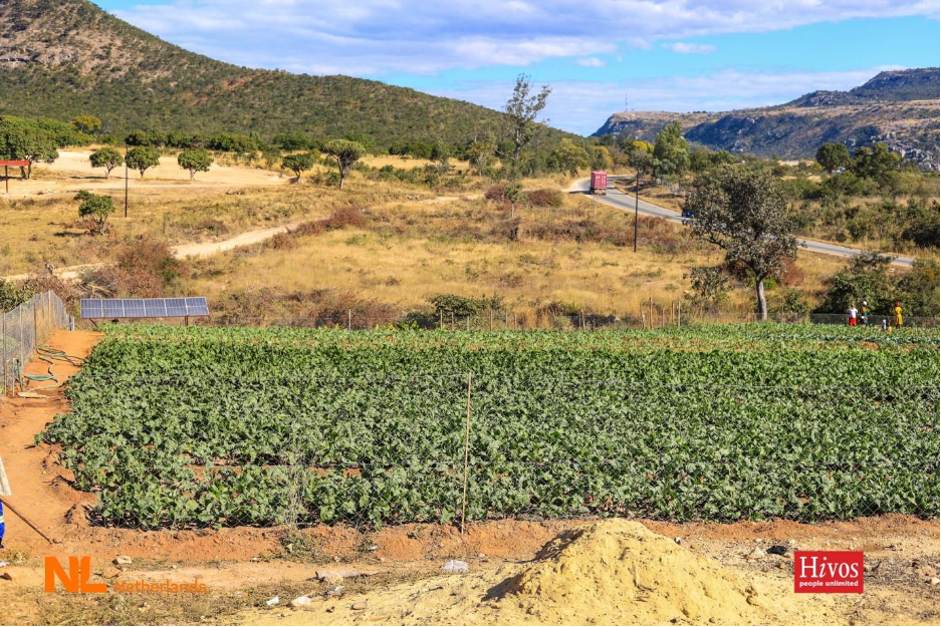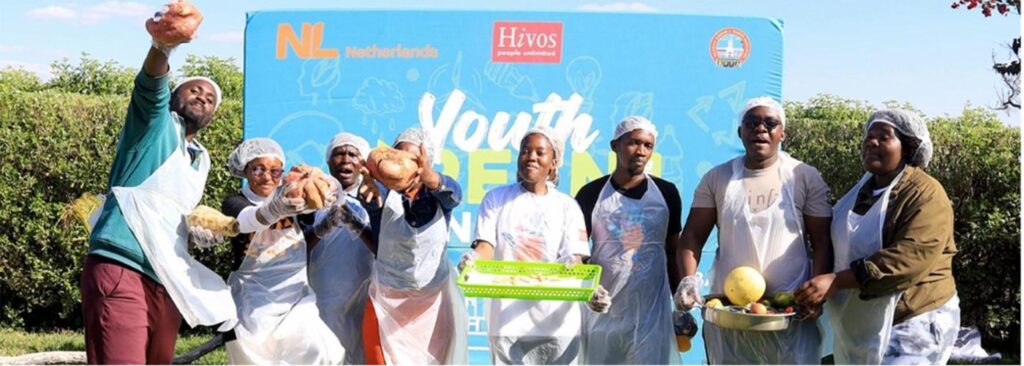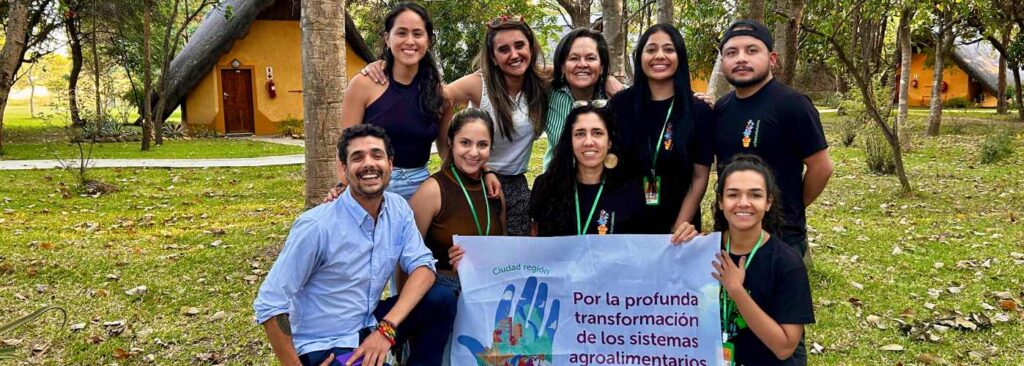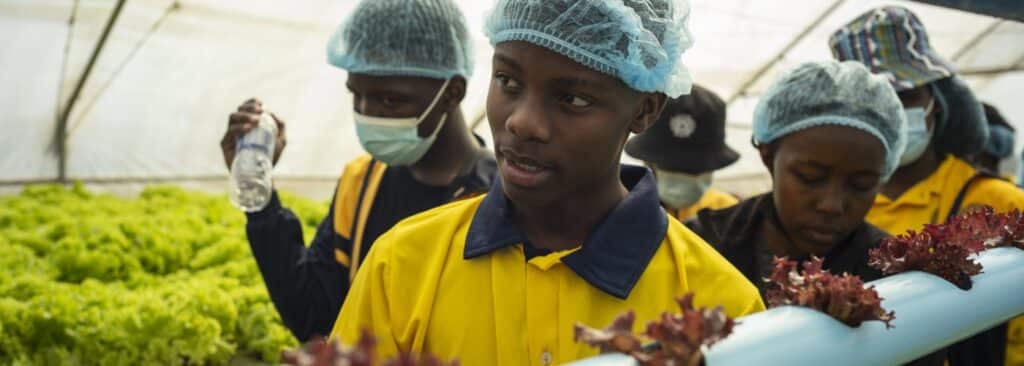In the 2023-24 season, a climate change-induced drought led to widespread crop failure and death of livestock that caused cases of hunger and malnutrition to rise across Southern Africa. In Zimbabwe, the President declared a state of emergency over the pervasive hunger and other drought-related problems.
In light of all this, new farming methods have become critical in the search for alternative ways of producing food for the people of Zimbabwe. Our Urban Futures program, with its focus on holistic approaches to improve food systems and bolster climate resilience, offers innovative options for producing food even under challenging circumstances.
The Green Transition Project
The program’s successful work with young people inspired the Netherlands Embassy in Zimbabwe to fund a related sub-project called the Green Transition. It focuses on climate-smart agriculture, value addition, and entrepreneurship, targeting urban youth in Bulawayo and Mutare, Zimbabwe.
The project empowers young farmers to run sustainable, environmentally-friendly agri-businesses and continue producing food regardless of climate variabilities. Selected youth in Mutare took part in a two-day smart agriculture training that covered entrepreneurship, financial management, sustainable agriculture, and smart farming.
“The Green Transition project is based on the understanding that the climate is changing, and we have got more pressure on the resources that we are left with. So, we are encouraging young farmers to be more efficient and productive with the few resources that we have. Resources such as water and soil,” explains Shadreck Zhou, a smart-farming and resilience-building trainer within the project.
Working with urban youth
A preparatory study commissioned by Hivos showed that 65 percent of the food consumed in Bulawayo is produced outside the city and easily goes bad. This inspired the focus for the Youth Green Transition training in the city: creating longer lasting value addition of over-ripe fruits and vegetables that would otherwise be thrown away.
Young people took part in practical sessions on the production of drinks, sweets, sweet potato crisps, and other snacks. They also learned policy advocacy skills as it is important to be able to lobby for changes in local food governance.
A tour of the Taguta Farm in Mutare introduced the youth to sustainable, urban agricultural practices that allow for continuous food production regardless of weather patterns.
“As a horticulture farmer, I learned a lot about sustainable soil management and how to use waste as manure for the next crop. This cuts costs and improves my product by making it organic,” said Tendai Othilia Uzande after the training.
Connecting with Urban Futures
Following the training, a number of the young people submitted pitch proposals. They will be receiving farming equipment through the Youth Green Transition so they can continue developing alternative food systems and creative solutions for the green economy. They will also have access to innovation hubs developed through the Urban Futures project, where young people receive advanced high-quality training on new farming techniques.
“We will have the young people act as ambassadors, sharing knowledge with their peers and pushing for policy changes that will improve food systems and supply in urban cities. We’ll use lessons from the Urban Futures program to track their progress and assess their initiatives,” Runyararo Chibota, the program’s Regional Coordinator, explains.

